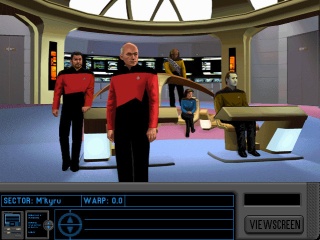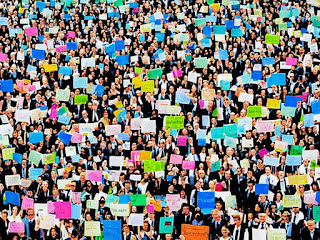Introduction
Peter Joseph did a podcast in December 2024 called “Revolution Now! Episode 53”. Somehow I managed to miss all the previous episodes but I caught this one and listened to the whole thing.
The first part was a good explanation of why we need to explore the idea of an alternative socioeconomic systems. For me, this is a bit of preaching to the choir as I’ve been looking into this sort of stuff since the 1990s. To me, the unsustainable nature of our current system is obvious but to anyone new to the subject, the first part of Peter Joseph’s podcast is worth listening to.
The part that interests me the most starts around the 49:22 mark, so I will concentrate a bit more on that.
Self organising and all that jazz
The thing that caught my attention most with Peter Joseph’s podcast is the overview that he gave of a possible future socioeconomic system. What was proposed has a lot of similarities that the system proposed by the Earth Organisation for Sustainability (EOS), which is based in Sweden, and is laid out in The Design. To start with Peter Joseph talks about self organising distributed, decentralised, systems. At 51:39 he states:
“Efficiency
Efficiency emerges through decentralised cooperative networks, with all knowledge shared, infused with direct democratic mechanisms to arrive at economic action.”
EOS also proposes a decentralised cooperative network. Not much is given in the podcast about the network topology however. The impression I got was it was a full connected network. EOS, however, does present more details about the network topology. In EOS’s Design the network is a holonic system. Holonic systems form part – whole constructs, similar to what we find in nature. These type of cooperative decentralised systems can work well if a number of criteria are met:
Goals
Communications
Rules
The system has to have an overall goal. Peter Joseph doesn’t actually say anything as such about goals but goals can be inferred. EOS, however, explicitly states the goal as:
Highest standard of living for the longest time possible
That goal is borrowed from Technocracy Inc. and I would imagine that the goal of Peter Joseph’s network would be much the same (or at least compatible).
Communications is the next important attribute that self organising systems need to function. Peter Joseph talks about feedback loops and certainly feedback in such systems is vital for them to work. However, there is more to communications than just feedback. New ideas need injecting into the system as well, for example.
The last thing that self organising systems need is a set of rules to work with. At the very least they will have the laws of physics to work with but a network of human communities would need other rules in common. Such as a basic set of human rights.
These aspects of self organising systems weren’t explored (although I can infer them as “natural law standards” and “scientific analysis” is mentioned) in the podcast probably because the last section was really a short introduction to a complex subject. I hope, however, Peter Joseph will go into these in more details in later podcasts.
An example of how these three aspects enable self organisation can be seen in the following video. In the video the metronomes fail to synchronise at first. They have rules (the laws of physics) and they have a goal (to measure time) but there is no communication channel. However, when they are put up on to two cans, the vibration form each is able to influence the others. With communications established, the metronomes synchronise automatically.
An other interesting overlap is the presentation of food production as an example. That is something that EOS has also been looking at. EOS was part of a cooperative project to build a biodome in Sweden.
 |
| The biodome built by EOS in Umeå, Sweden |
The technical aspect
Now we come to the bit I have most problem with. Both Peter Joseph’s ideas and those presented by EOS aim for a hi-tech society. Both see the system being demand driven rather than centrally planned. Both look at efficiency using science driven analysis and AI. Both see the system as being open source. So far so good. But then we come to complexity. Peter Joseph makes the point at about 54:12 that as participation grows complexity grows. Yet, the system proposed by Peter Joseph relies on democratic mechanisms. I would argue that that is going to require management by technical experts if this is to work. Peter Joseph does make a quick reference to the need for management and how that can be worked out later. I would argue that this point is so fundamentally important that it needs to be worked in from the start.
If the system is to use scientific analysis then it will need people to understand that scientific analysis. If the system is to have technology, then it will need people who can understand that technology and can design and implement it. If the system is to have zero waist then it will need to be able to efficiently manage its resources and that will take knowledge and expertise.
The problem with knowledgeable experts is they tend to be in the minority but the majority, who have a poor understanding of the subject, tend to over estimate their abilities. Thus, you will most likely get wrong decisions being confidently made and correct decisions being overruled if you leave the decision making to the masses. This is known as the expert in the room problem. Imagine needing brain surgery and the brain operation being decided by the masses who have no idea about brain surgery. How confidant would you feel about going under the knife?
You can still have the people participating in what a society does and what is produced. But at the level of a customer. The people can demand what is to be produce but behind the scenes you will need a team of experts making the decisions to get the whole thing to work. This problem is addressed from the beginning in the Design preposed by EOS.
This system will also need regulation and control. Both Peter Joseph’s and EOS’s systems are moneyless systems but there still needs a control mechanism. As they say, you can’t control what you can’t measure and from what I see there is no measurement system in what Peter Joseph proposes. There is a mention of time banks, which is something that could work on a small scale but this system wont take into account the energy and material needs of the system. And as the system becomes more complex, I would expect a system using time banks to run into problems. EOS has a system energy accounting. All systems require energy to work and we can measure the energy we have available and what we need to produced items. If we allocate the energy to the people, this becomes a mechanism to allow people to decide what gets produced. It also allows us to monitor demand and production and to manage the system. The energy accounting system will also scale as the system becomes more complex.
Conclusion
Much of what Peter Joseph proposes is compatible with the Design proposed by EOS. However, there is a need of expert management behind the system. This need for expert management will become more important as the system becomes more complex. This is something that is central to The Design by EOS but appears to be an after thought in Peter Joseph’s proposal.






